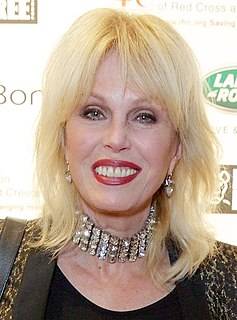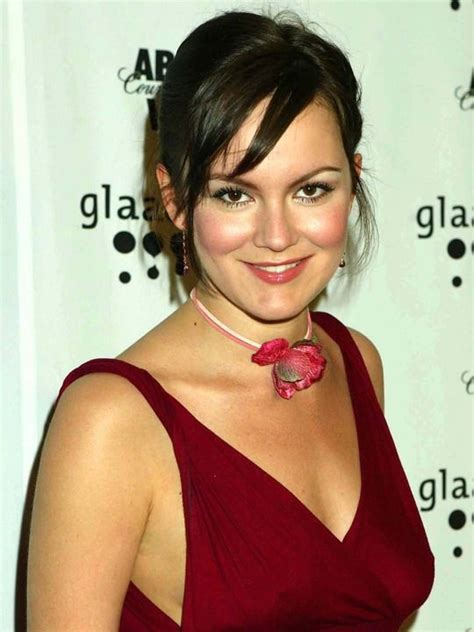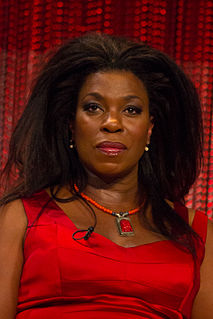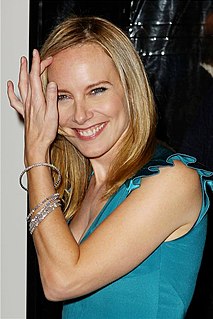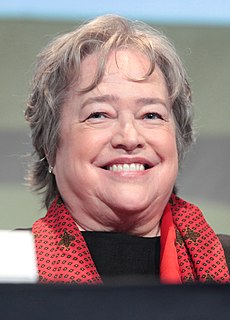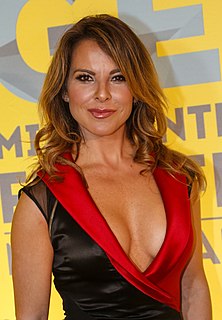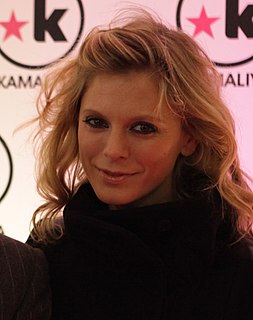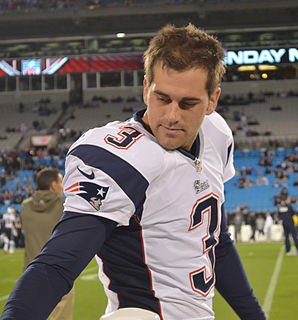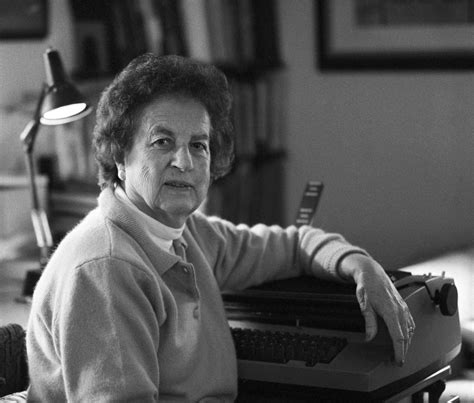A Quote by Joanna Lumley
Cameras love pretty girls and craggy, old character men more than they can take craggy, old character women. But that's what's always happened. Work out how you can fit into it, and make that work. There are never going to be millions of parts for older actresses because there never were.
Related Quotes
When you're on a movie and the production department says, "We need old photographs of you - your character - when you were 20-years-old." I usually tell them it's in storage or I had a fire. I go back to these old photos and there's never a good photo or they're of times that I'm so glad I'm out of. They have nothing to do with the character that you're playing, so it feels false. That's one of the hardest things for me in terms of looking back.
Stage is so important because it teaches me how to convey character with words - how to convey how a character reacts by the way they appear on stage. I can usually tell a playwright from someone who has never written for the stage. Did the character work? Did the dialogue reveal who the character is?
When I was a little kid, if somebody said they were thirty-five, I'd say "Oooh, they're going to die soon". But as I get older it doesn't mean a thing. You mustn't ever give in. Never give in to thinking you're old, because you're never old. Your mind, and I tell you this and listen to me carefully, your mind is never, ever old, it's eternally young.
No [I'm not a feminist] because I love men, and I think the idea of 'raise women to power, take the men away from the power' is never going to work out because you need balance. With myself, I'm very in touch with my masculine side. And I'm 50 percent feminine and 50 percent masculine, same as I think a lot of us are. And I think that is important to note. And also I think that if men went down and women rose to power, that wouldn't work either. We have to have a fine balance.
My friends, when I was young, were always older than I was, and I've always liked them. And I love old men and old ladies, really. But I've known more elderly men, like Max Beerbohm, like Beranard Berenson, like Somerset Maugham, Winston Churchill-I'd put him first, anyway-what they say is so wise and so good. They know what they're talking about.
When an old man and a young man work together, it can make an ugly sight or a pretty one, depending on who's in charge. If the young man's in charge or won't let the old man take over, the young man's brute strength becomes destructive and inefficient, and the old man's intelligence, out of frustration, grows cruel and inefficient. Sometimes the old man forgets that he is old and tries to compete with the young man's strength, and then it's a sad sight. Or the young man forgets that he is young and argues with the old man about how to do the work, and that's a sad sight, too.
As a biographer, I try to uncover the adventures and personalities behind each character I research. Once my character and I have reached an understanding, then I begin the detective work reading old books, old letters, old newspapers, and visiting the places where my subject lived. Often I turn up surprises, and of course, I pass them on.
